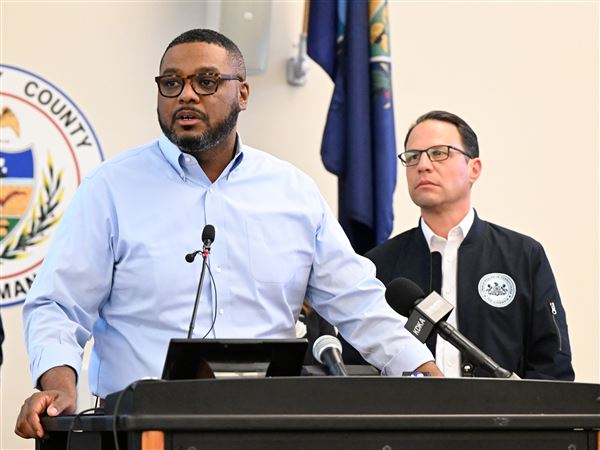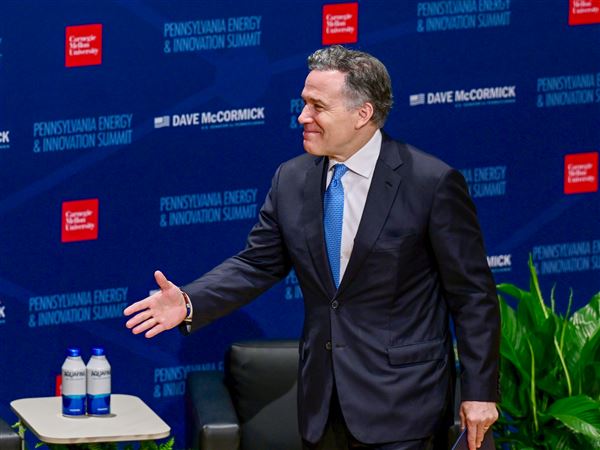Reforms instituted at the embattled Pennsylvania Higher Education Assistance Agency have made a dramatic difference in the past year, according to state Sen. Sean Logan, PHEAA's vice chairman.
Through Dec. 7, the agency has saved more than $40 million through its reform programs when compared to the same period in 2006, said Mr. Logan, D-Monroeville, during a meeting yesterday with the Pittsburgh Post-Gazette editorial board.
The reduction in its travel and business-related expenses was more than 44 percent from April 1 to Sept. 30 last year, compared to the same period in 2006, he said.
PHEAA has granted loans to Pennsylvania students since 1964 but has come under fire in recent years for lavish spending on employee salaries and bonuses, as well as retreats and perks for clients and employees.
"PHEAA was a bloated state agency," said Mr. Logan, adding that "there's a lot more to do -- a ton of things to do."
By next month, he said, PHEAA hopes to announce its new chief executive officer. With the assistance of Philadelphia firm DHR Executive Search, PHEAA plans to interview prospective candidates this month.
The previous CEO, Dick Willey, had planned to step down at the end of 2007 but ended up being forced to resign in October following an audit showing a $79,000 staff retreat to Hershey Park -- an event that was news to PHEAA's board.
Mr. Willey has also faced criticism over the last several years about posh retreats that included spa visits, $150 cigars and falconry lessons, and the $298,000 salary and $181,000 bonus that together made him the state's highest-paid employee.
The salary structure for the new CEO has not yet been determined, said Mr. Logan.
But beyond just the issue of who will lead PHEAA, larger questions remain about the agency's future.
Currently, PHEAA also encompasses American Education Services, which gives loans to students outside of Pennsylvania. The revenue generated by AES flows back into PHEAA to the tune of $200 million per year for grants and scholarships for Pennsylvania students, said Mr. Logan.
One option would be splitting up the executive boards of PHEAA and AES. While the two organizations share resources, they operate with different missions, said Mr. Logan.
"We're at a crossroads," he said. "We need to determine if we want to be a state agency."
In 2005, PHEAA turned down a $1 billion buyout offer from Sallie Mae, another student loan provider. In the past year, however, Gov. Ed Rendell has said that privatization is still an option.
Along with the expense cutbacks in travel and business-related expenses, PHEAA has also suspended bonuses, attendance at unnecessary conferences and unnecessary advertising, marketing, sponsorships, capital improvement projects and consultant services.
Promotional activities have been cut more than 90 percent, or $175,000, from April 1 to Dec. 7, 2007, over the same time period the previous year, said Mr. Logan. Over the past five years, PHEAA has spent $2.2 million on promotional items ranging from pencils to pompoms.
The agency is conducting an internal audit, scheduled to be released to the agency's board next month, that will evaluate the effectiveness of the various cutbacks. Making sure that AES has enough resources to continue to generate revenue is a concern, said Mr. Logan, noting that he's confident that there's plenty of waste to be eliminated.
Since March, he said, PHEAA also has adopted a code of ethics barring revenue sharing between itself and schools, gifts and trips to schools beyond a nominal value, and payment to postsecondary employees for service on committees or advisory boards.
"A reform a month has been made to change the culture of PHEAA," he said.
First Published: January 4, 2008, 5:00 a.m.
















